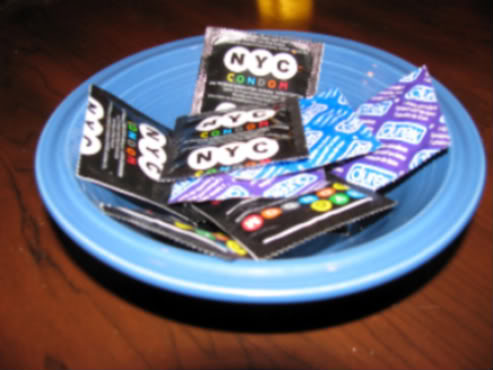WASHINGTON, D.C. -- Given that the government, in some cases, gives out condoms to prevent disease and infection, a recent Human Rights Watch report might strike some as a surprise.
The report, released last month, said that on the streets of major American cities, word has spread that police are seizing condoms from sex workers and using the condoms as evidence for prostitution charges. The report says police in Los Angeles, Washington, D.C., San Francisco, and New York City have been violating the health rights of sex workers by searching and arresting sex workers for carrying condoms.
Anti-prostitution loitering laws make this practice legal in some large cities, including Chicago. And attorneys and advocates are questioning why the government handed out condoms to prevent HIV infection and then seized them, exposing marginalized individuals to even higher risks for infection.
Consider this from Andrea Ritchie, a police misconduct attorney and organizer in New York City, who said she was asked by a 22-year-old transgender women: “‘I’m damned if I do, and I’m damned if I don’t … Why do they take our condoms? Do they want us to die?’”
Though some sex workers told researchers they continued to carry condoms with them, many sex workers have reported that they carry as few as one or two condoms for fear of harassment by police.
Carol F., identified as a Los Angeles sex worker and interviewee in the report, said, “There were times when I didn’t have a condom when I needed one, and I used a plastic bag.”
The report emphasizes that vague anti-loitering laws allow for police to racially profile individuals who “look” like sex workers.
Women of color, transgender women, lesbian, gay, and transgender youth are at highest risk for HIV infection and most often suffer police harassment, according to the group.
“A woman of color standing in a bus stop with six condoms in her purse because she just came from the women’s health center is automatically a suspect,” Ritchie said. “And being a young gay man walking down the street or in the park with condoms in his pocket is enough to add up to a criminal charge.”
And so, many sex workers have been asking activists the question: “How many condoms is it legal to carry?”
In Los Angeles, Human Rights Watch reported that sex workers abide by the “three-condom rule.” If a sex worker is found with more than three condoms, they are suspects for prostitution.
In response to accusations, the police have been keen to emphasize condoms are only supplementary evidence in a prostitution charge.
Washington D.C.’s assistant chief of police Peter Newsham stated that searches only take place if police find probable cause for arrest; condoms are usually found on the suspect and are catalogued for evidence. Newsham said the fight is against pimping and human trafficking cases, and in this battle, condoms are helpful.
Los Angeles and San Francisco police say that while condoms are not “a focal point” for prostitution charges, condoms are certainly indicative of prostitution, according to the report.
What remains, though, according to Megan McLemore, senior researcher in the health and human rights division of Human Rights Watch, is that fear will prevent sex workers from protecting themselves against infection. “Standing on a street corner, [sex workers] do not have a lot of protection from harm,” McLemore said. “To take away one thing that is legal for them to carry, that they are using to protect themselves, is not acceptable.”
Human Rights Watch says a balance can be struck where the police can both enforce prostitution laws and also protect public health and stop HIV infection.
“An example is the needle exchange program that exists in each of these cities,” McLemore said. “Police refrained from arresting drug users or from harassing them or threatening them with arrest at these clean syringe exchanges. This model should be applied to condoms.”
“Condoms,” McLemore added, “should simply be off limits to prostitution enforcement as a matter of public policy.”
Joyce Lee is a reporter with the Chicago Bureau
